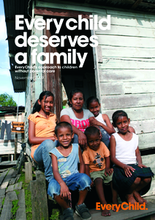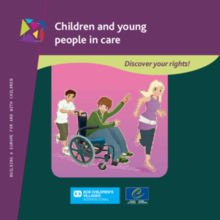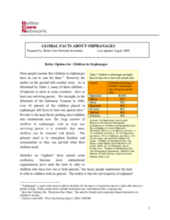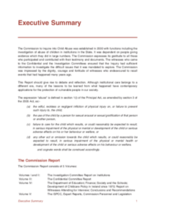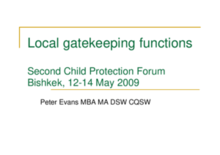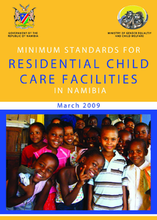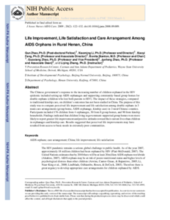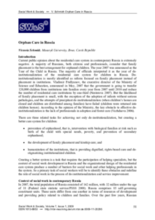Displaying 1361 - 1370 of 1510
This document outlines EveryChild’s approach to the growing problem of children without parental care by defining key concepts, analysing the nature and extent of the problem, exploring factors which place children at risk of losing parental care, and examining the impact of a loss of parental care on children’s rights.
This booklet is designed for children and young people in care to explain how alternative care works, what their rights are as young people in care and whether these rights are being respected.
Keys findings from the full investigation into state-run children's institutions in Ireland from the 1930s - 1990s
This presentation, conducted by Peter Evans at the Second Child Protection Forum in Bishkek from 12 to14 May, 2009, includes information on gatekeeping, including a definition, the components of gatekeeping, a flowchart of entry routes for children into institutions, outlines of assessments and intervention plans, monthly monitoring and information systems, and more.
This Minimum Standards for Residential Child Care Facilities in Namibia is designed to assist child care service providers, ministerial staff, social welfare partners, and other stakeholders concerned with the quality of child care, to establish, maintain and manage high quality care services for children in Namibia
This study aims to compare perceived life improvement and life satisfaction among double orphans in 3 main care arrangements (group home, AIDS orphanage, kinship care) in 2 rural Chinese counties.
This document includes a portion of the individual worksheets accompanying the Manual for the Measurement of Indicators for Children in Formal Care.
Each “case study” chapter in this book provides a rich description of the development, current status, and future of residential care in countries from Brazil to Botswana.
Current public opinion about the residential care system in contemporary Russia is extremely negative. A majority of Russians, both citizens and professionals, consider that family placement is the best arrangement for orphaned children.

